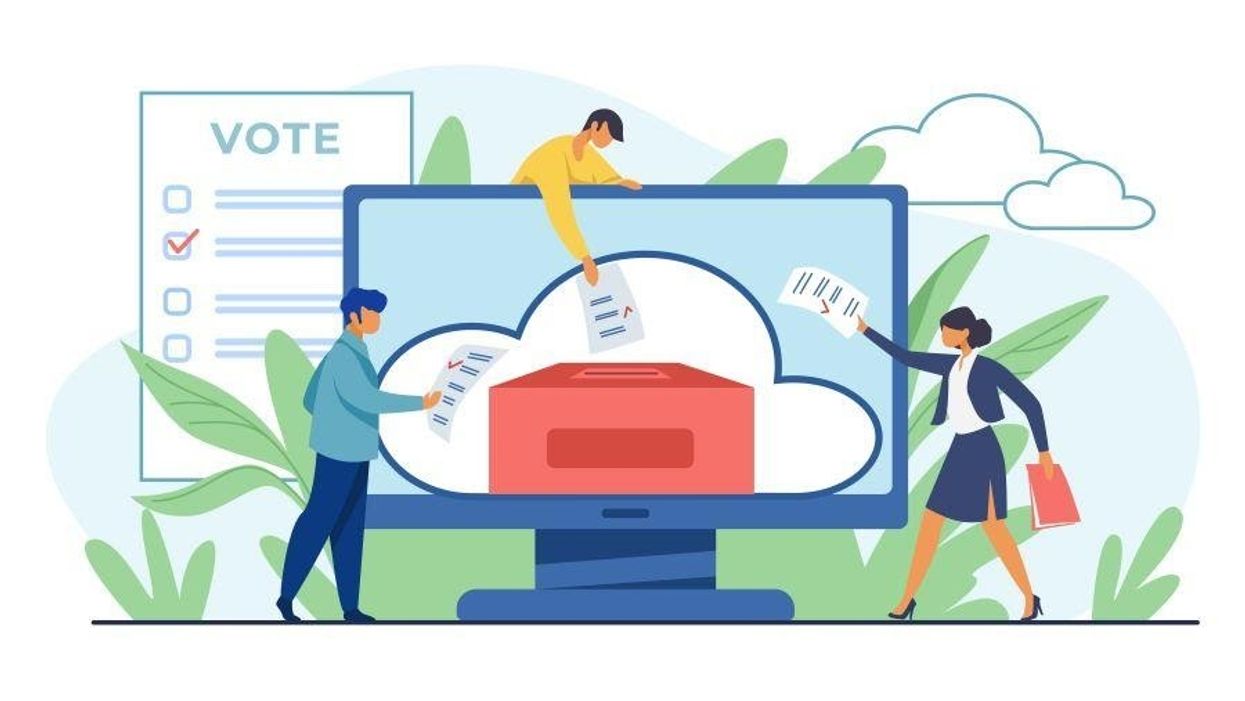With so much attention in the run-up to Election Day paid to potentially fatal delays for millions of mailed ballots, many Americans may be wondering if electronic voting could have been a better solution.
And there are plenty of ready answers to some of the most common questions surrounding e-voting — and plenty of ready guidance about what you still need to watch out for in the final hours of the campaign, to protect yourself and your right to vote if you intend to vote in person.
E-voting is the process by which a registered voter can submit a ballot using electronic means, instead of mailing in a piece of paper or going to a polling place. Generally, voters view their options on a computer screen and make their selections, much like taking an online survey. (They may be required to first insert some type of card into the voting system to verify their identity.) Then their votes are stored on a memory disc, in the cloud or through some other mechanism until they are tabulated.
Some more advanced systems permit voters to visit their country's election website, download and install an app for voting and then cast their ballots any time until the polls close on Election Day.
The most compelling reasons for e-voting handily outnumber the main reasons against:
This system is more convenient than the current options. It's also more private. And it costs less to implement and maintain. It is a faster method for voting and for counting votes. It has the ability to motivate more voting activity. And it can readily allow a more inclusive process, by providing ballots for individuals in different languages and greater accessibility features.
On the other hand, the drawbacks include a lack of transparency regarding how systems work, the potential risk of compromise by hackers and a lack of consistency — since many different manufacturers are producing and marketing electronic voting systems.
E-voter fraud may be committed using many of the methods for cheating in traditional methods of voting, seven of which are succinctly outlined by the conservative Heritage Foundation think tank:
- Impersonation fraud — when someone pretends to be you, or someone who's died or moved away, to vote in another person's name.
- False registration — when someone uses a fake name or address to get on the voter rolls.
- Bribery — when someone pays or promises to pay in exchange for a vote for a particular candidate.
- Duplicate voting — when the same person votes multiple times in the same election.
- Absentee ballot fraud, when someone requests a mail ballot on behalf of someone else and fills it out without their permission.
- Ineligible voting, when a person who does not have the right to vote (by not being a citizen, for example) votes anyway.
- Illegal assistance, such as forcing or intimidating voters at the polls.
There is an additional layer of concern regarding e-voting because it uses electronic systems to report votes. Such systems could potentially be hacked by outsiders to alter the count, fabricating tabulations after the voting ends. Additionally, if e-voters do not cast ballots in the contests where they're eligible (because of where they live) it may be easier to commit voter fraud since there would be insufficient oversight.
Beyond that is the risk of voter fraud through identity theft. One form of identity theft occurs when a scammer contacts registered voters, claiming to work for a local election board needing to "verify voter registration." The scammer may then ask the person to verify personal information, such as a Social Security number, which has nothing to do with voting at all.
Cybersecurity statistics show rates of identity theft have significantly increased during the coronavirus pandemic. Some experts estimate that as many as one in four people may wind up a victim of identity theft. With more transactions occurring online, it may be easier for identity thieves to steal your information and go undetected. Additionally, statistics also show that identity theft is a growing concern — and yet not many know about this issue.
There are several steps voters (regardless of how they will mechanically cast their ballots this fall) can take to minimize the possibility of being a victim of voter or identity fraud:
- Do not give confidential information to a person who solicits you.
- Only provide registration information on a form you complete that goes to the appropriate voting authority.
- Make sure you use a secure network when casting your vote.
- Vote as early as you can, even on Tuesday morning.
- Use a monitoring service to detect potential fraud.
Following these steps can help you prevent voter fraud while also preserving your important constitutional right.



















